Y.Sunita Chowdhary
He is not exactly a new writer in town. He has worked in two films earlier – Savyasachi and Lakshya but it is his third film that has catapulted him to glory. Eversince Kartikeya 2 released, there have been enquiries about this youngster who has an understanding of all the genres and navarasas that is so inevitable to screenwriting. Mani Babu is in the spotlight for Kartikeya 2 – the film that minted 100 crore plus at the BO without any noise or fuss. The young man knows his strengths and limitations and has no qualms admitting the former. He has enjoyed his 15 minutes of fame and has quickly moved on to get involved in his next project Eagle being helmed by Karthik Ghattamaneni. Chandoo Mondeti, director of Kartikeya says, “I write my own scripts, if it is a remake, I do my own changes in screen, story and dialogues. A friend of mine suggested that I try him for my project and I thought I’ll send him off after pleasantries get exchanged. I found Mani Babu sincere, liked his writing and quickly noticed the sincerity with which he does his work. We can depend on him. He tells me if something is right or wrong and is also very loyal. His initial two films didn’t work and I always felt that if he gets a correct script, he will get his due. Finally, he made it big.” We can’t agree more when Chandoo Mondeti adds that there are umpteen talented writers and narrators but those who have knowledge and an understanding, those who believe what the director says, does a balancing act are few and far between.
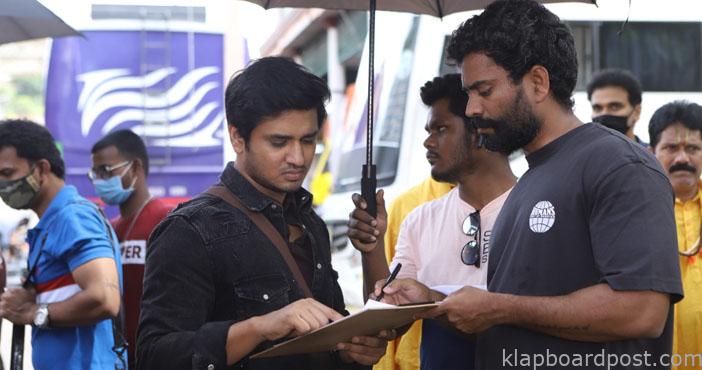
Born and raised in Srikakulam, right from his childhood to high school, Mani Babu’s medium of study was Telugu but switched to English when he relocated to Gajuwaka, Vishakapatanam to do bachelors in Life Sciences. Did his parents insist on him finishing his academics first before he pursued cinema? Not quite true. He says, “I will see it from a different angle instead of glorifying the struggle. It was predominantly my dislike for Math that made me go for Sciences. Science is more of a subject of mass. My leaning towards science is due to my dislike for Math. There was no force from anyone and I strongly believe it is not me who is driving myself. It is something inside me which is pushing me to make my decisions. I might sound philosophical but it is some power which has driven me towards film. After graduation, I did MBA and then worked in an IT company. Basically I am an introvert and I feel my energy gets drained in the mobs or whenever i’m in the group. I have written since then and believed that my place is for the screen.”
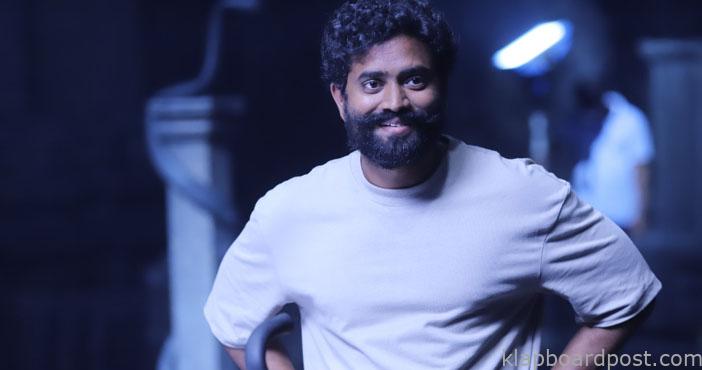
Mani Babu’s father loved dramas and the former’s only interest in childhood was theatre. Every time he’d see vast spaces, a cold storage, a godown he would think it is a theatre. He would always go to films and Telugu cinema and commercial cinema has been his pick. Was he a voracious reader and did he believe that reading helped him write consistently? He disagrees and says, “Reading definitely is for acquisition of knowledge. Book reading helps but your perspective, your philosophy, theory of approach defines the person you are. At the end of the day it is your viewpoint that makes the difference. Words come as a spontaneous emotion. Post MBA, I did a job for a prolonged period as a HR executive. Later I began ghost writing. I began going office to office for opportunity which is where one day I met Chandoo and our wavelengths matched and the travel began. Savyasachi was my first film, then I wrote dialogues for Lakshya (director Santosh Jagarlapudi). K2 is the third film.” For the writer, wielding the megaphone is a distant goal. He is basically a writer and a poet but someday he would like to justify the stories he had written for the screen by actually making them.
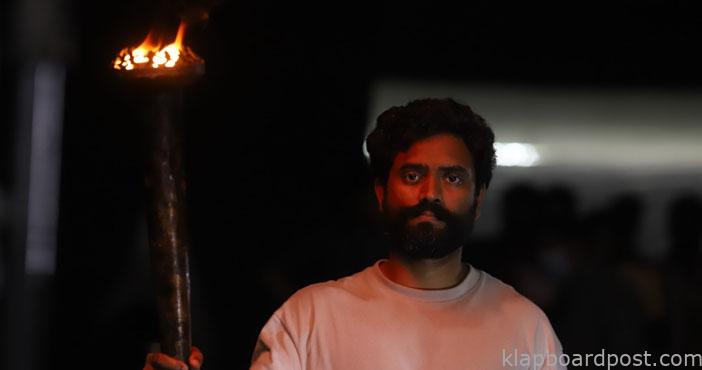
Mani Babu stresses that one has to love the subject, believe in it and himself that his writing will add value to it. He picked up the grammar of film writing while he was a ghost writer. It helped him a lot and he could analyse as to how much of a drama he can make out of it. He practised a lot for two or three years. Can a writer break the stereotypes? “In the initial stages, if you stick to one institution and get a hold of it, then you can dare to break the rules. Once you are a master of your work, you can break the cliche. A new world is born out of that.” Ask him how easy is it to write for two completely opposite films like Jatiratnalu or K2? Many avers, “Jatiratnalu makes the conviction of the director or writer obvious, they are pretty serious on not being serious. It isn’t easy to write stories like that.. writing and pulling it off is a difficult job. I can write stories like K2 or action tales or for that matter anything in the Navarasas; It is an effortless job. Comedy is difficult just not for me but most of the writers.” About K2, there was a section of people who thought it was a simple story that hooked the audience’s attention but it isn’t spectacular as it was made out to be. Mani Babu says he heard of it but he strongly believes in the film’s success. There were five people who believed that this film would work big time right from its inception – The director, hero, producer, writer and cinematographer. The rest were doing their job and were following instructions. He adds, “The director wanted to convey that our roots are strong and by forgetting it, we are doing disservice. Also our history is not a story, there are no gods, there are our ancestors. He shared the vision and articulated. Whether we see or not see, that is what worked. I stuck to the same point, we had so much clarity. The team believed in it, they had clarity and worked for it. They also went back to some distant locations and re-shot again.” True, the director and the hero wanted the film to be a success and never took money and became partners in the production. Sometimes the budget exceeded but still they gave the best quality output and viewing experience to the audience. The writing of course is the clincher, Anupam Kher’s monologue drew cheers.
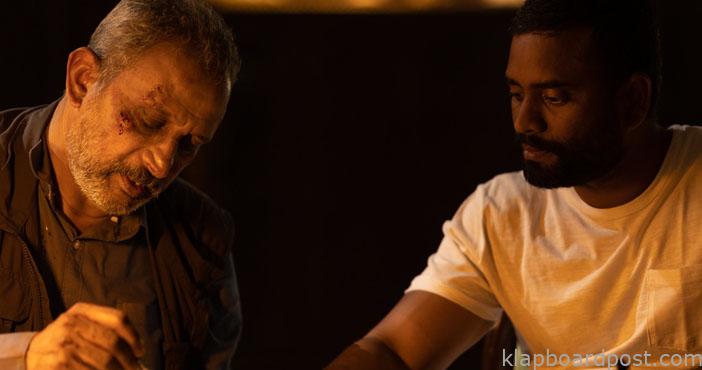
Can the writer list out of his reasons why the film swam against the tide? “Earlier you were praising your neighbour’s kid but now you’ve seen the talent of your kid and it’s time to shower encomiums on him. There are many extraneous factors that helped K2 get its share in the sun. Also people are fed up with mimicking other stories. In Telugu, if you are mimicking other stories it gets rejected. It is working because we are on par in story telling world wide. We stuck to our roots and began believing it belongs to us. The director and I believed gods are our ancestors. ..we have archaeological evidence. Anyone who has excellence will be extolled, says Anupam Kher. We have zillion gods, don’t use the word and distance yourself from him. He is our man. If you deviate a bit, it becomes bhajana. The audience heard the Anupam Kher dialogues in rapt attention.”
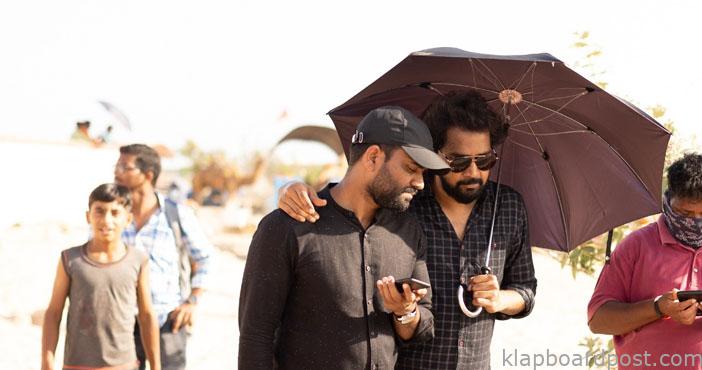
Mani Babu states that the output is so good and one person who needs to be given “agartamboolam” is cinematographer Kartik Ghattamaneni. He waxes eloquent “He is part of the magic. His thoughts, the prompt solutions all helped the film in a big way. Kartik is brilliant, he never gets tired, when it comes to writing he gives valuable ideas. He helped me write by 25 to 30 percent and all those scenes like the snow mountains, the drowning in the frozen lake etc were his. He as a director is to be watched out for, a genius in the making. He also helped so much in the art work and gave many ideas to finish the film faster on a shoestring budget. For the climax set, he stayed there and got it made. Only the concept was given to him and he filled it up brilliantly.”
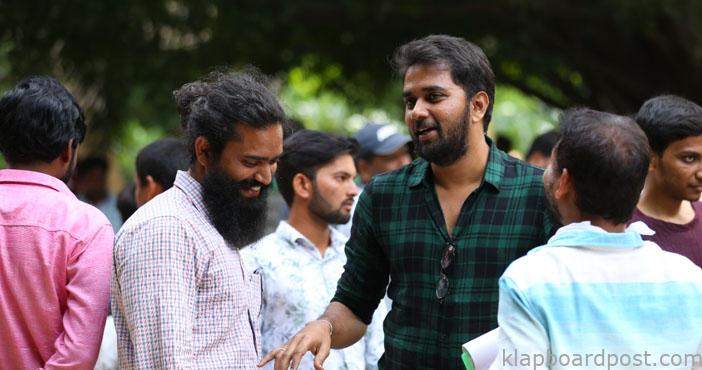
A great story idea will remain only that – an idea, if it is not expressed well. Very simply put the manner in which you express your story idea is your writing style.
There are two keywords here: manner (how) and express (what). So, how do you say it? Often the writing style of a writer becomes characteristic of that person.
Some directors have great vision but aren’t articulate. Some are so expressive that the writers visualise and put it down on paper immediately. What is his process exactly? He quips, “My work philosophy – I understand the director’s vision and put it in on paper, second..I make sure it has my signature style/mark that stands out. For instance, when it comes to Chandoo…by the time he tells me half of the story, I understand it completely. I also understand how strongly he wants to say it and I take care of the words. It is the same with every director. I have had a rapport with him for five years and it continues to grow better. Every day, once the shoot starts and till the post production..we improvise, repair etc. The bound script is there but constant improvisations are inevitable. Around 95 percent of this helps the film.“
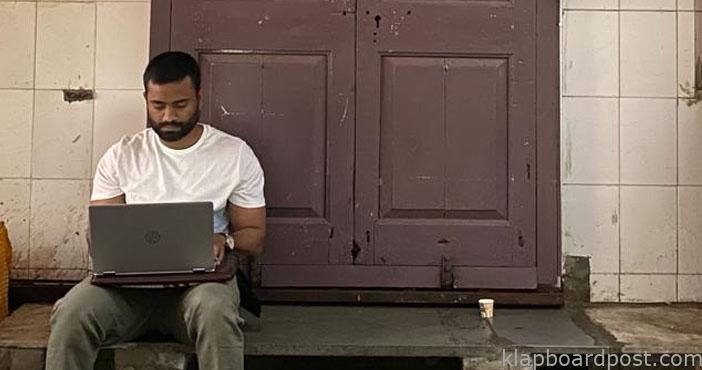
Mani Babu says the high point for any writer is when the audience appreciates certain aspects from his film and asks him how a particular idea germinated and how he could pull off something like that. His USP is writing philosophy and he finds his dialogues effortless and tireless. The interesting aspect is, as a child he would go to the theatres and watch hit films that have had the third re-release. Driven by curiosity, interest and understanding, he would watch ‘Pouranikam’ too. He would read Gita and books that people haven’t read for a new perspective and sound. Does Mani Babu often get doubts or is he a man with clarity? “I have many zillon doubts but if I begin asking doubts, You will label me mad. If someone believes in something strongly, there is no point debating; A full cup of tea will not take more tea. Does God exist or not, the journey to know the truth will have many questions. I put many doubts under the litmus test and I believe that irrespective of time line it will stand well out there. The quality that truth has is that it will be under test periodically and it stands the test of time. A film is not hit because it is entertaining but there is something to take home from that. A film is a business and before the end of day it will be remembered but not as a regular cinema angle. On that note, even I think..there is a certain reason why it happened. Sustaining success is not easy.
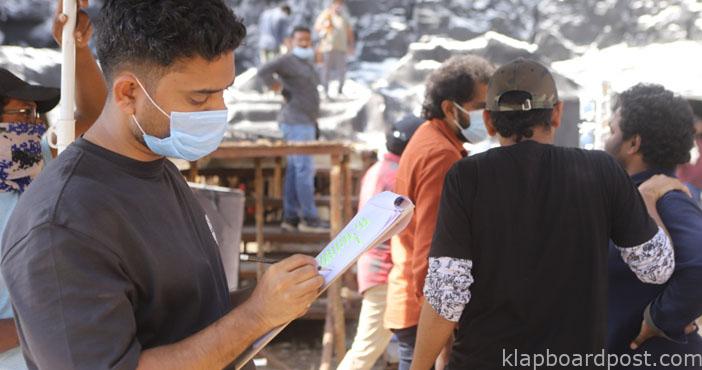
Has there been instances when the team felt that things fell in their favour during tough times? The writer shares that they shot 28 days non stop in Dwaraka and the natives said that nature never cooperated with anyone all these years. When they went to Manali, the snowfall etc, the people withstood it and it was an unbelievable feat. During post production, the BGM or in the last pressure hour there were many who came, helped and left. During dubbing, the crew sought a right voice and they found it in the most unlikely person they ever imagined. The voices of prominent people were deleted and this man who was underrated was used, and that too on many occasions. Mani signs off, “We used his voice to mimic other artists’ voices when their dates were not available. Also in the last moment, in the last scene – Anupam Kher comes as the flash cut, it is here I used my voice in Hindi and Telugu as well. People refused to notice these small things because they were involved and engaged in the film.”













